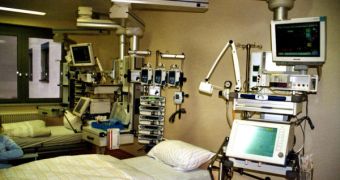Intensive Care Units (ICUs) are the first places in hospitals where people arrive after suffering severe injuries. Statistics indicate that as much as half of the patients that die in these units do so within the first 24 hours after their arrival. In a new University of Gothenburg Sahlgrenska Academy thesis, by nurse Isabell Fridh, it is argued that the ICUs themselves are poorly equipped to provide an end-of-life care for their patients, and that the situation is bad even in the most developed countries, AlphaGalileo reports.
The Intensive Care Units are, by design, not meant to provide an end-of-life care, experts say. Death most often occurs following traumas or complications, but neither the patients (if they are conscious), nor their relatives are ready to die. “The location and environment in which people die mean a lot not only for the person who is dying but also for those who are to look after them and those who must learn to live without them,” the author writes in her thesis.
In her study, which was conducted on Swedish ICUs, Fridh discovered that 40 percent of the patients who died in these units within 24 hours of their arrival had had no relatives present at their time of death. Additionally, the vast majority of units had no programs in place to support the relatives upon giving them the news. This came as a shock, because this was a standard practice in hospices, for example, where counseling was, indeed, provided.
“This may seem to paint a bleak picture, but the truth is that most of the relatives I interviewed for my thesis thought that the care given was a positive experience despite their sense of loss. Many feel that their loved one benefited from all available medical resources and that everything that could be done to save their life was indeed done,” Fridh adds. She also reveals that relatives mostly appreciate it when they are able to spend their final moments with their loved ones in private rooms, rather than in common ones.
The thesis has also included interviews with ICU nurses, which try to do their best to provide the right conditions for a patient's death. They give people the drugs they need to make their pain more bearable, and struggle to provide privacy for them and their relatives, whenever possible.

 14 DAY TRIAL //
14 DAY TRIAL //